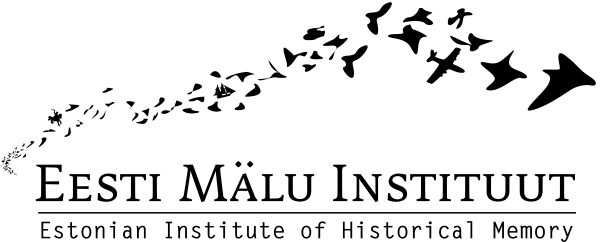These days we celebrate the 30th anniversary of the peaceful revolutions during the fall of 1989. Once again questions are raised about the decisive forces and supporters of these upheavals as much as about the continued effect of their signals.
During previous anniversaries, heads of state and political leaders were centre-stage, and Mikhail Gorbachev was hailed as the “Prince of Peace”. This fall finally sees civic actors from the protests and demonstrations step into the limelight. Several years ago, former Polish President Bronislaw Komorowski rightly noted:
“It was not the victory of diplomacy or alliances that transformed Europe, it was the desire of the people yearning for freedom.”
The call for freedom was the most crucial signal of the fall of 1989.
On November 9th, heads of state and government representatives from around the world will gather at the Brandenburg Gate. This time around, they are part of a weeks-long civic festival that aims to connect memories, expectations and questions about the future with one another.
Jaroslaw Hutka, the singer who contributed to the Velvet Revolution in Prague, will be one of the highlights of this year’s anniversary celebrations. He embodies the many famous and unknown participants, and the European, international character of the fall of 1989.
In the GDR, the numerous but small and isolated peace, environmental and human rights activists merged to become the main political opposition that would act in a coordinated manner and mobilise a citizen movement with hundreds of thousands of participants in the late 1980s.
On October 9th, Leipzig became the flashpoint for the showdown with the militarised authority of the SED’s regime. The protesters’ courage and determination forced the anxious and demoralised civil and military representatives of the state to capitulate.
The victory at Leipzig was part of a wildfire that had reached all countries of the Eastern bloc, the independence movements within the Soviet Union, in the Baltic States, Georgia, Ukraine… in a chain of democratic revolutions, liberty prevailed over tyranny. The Iron Curtain fell and after decades of separation and division Europe could finally grow together again. The decisive impulse for this watershed was the creation of the Polish union and political mass movement Solidarnosc in the late summer of 1980. The proud slogan “It all began in Gdansk” is indeed justified. What ensued was, to quote Vaclav Havel, the “power of the powerless”.
With the help of Glasnost and Perestroika, Mikhail Gorbachev sought to save a system that was doomed to collapse. He inadvertently became its gravedigger and had to witness the dissolution of this Soviet Union that he had tried to keep alive.
The Baltic States used this watershed moment and joined the other countries of the Eastern bloc to radically transform their political systems. Around 15 years later, their advancements helped them become fully-fledged members of the European Union.
Some of those countries that had dissociated themselves from the core Soviet Union, such as Ukraine and Georgia, still have the toughest part of their journey ahead of them. At the very latest since 2008 they are threatened by the hegemonic aspirations of a neo-imperialist Russia under the leadership of Vladimir Putin. It was the 1990s when the hope of establishing good neighbourly relations between sovereign, East European countries and a democratic Russian Federation turned sour. The poison of Greater Russian chauvinism remains effective.
The Lithuanian patriot and independence fighter Vytautas Landsbergis followed these developments with great attention. When asked about his views on the meaning of the year 1989, he replied>
“Back then we won a battle and were waiting for another”. He regards the development from Yeltsin to Putin, the defeat of Russian reformists, as a phase of increased risks and dangers. He believes that Russia intends to rule over its vicinity once more. Vladimir Putin and his followers, Landsbergis suggests, loved fearful and submissive – or what he calls “pacified” – neighbours. Only the membership in NATO and the European Union protects the Baltic States and Poland from the fate that befell Georgia and Ukraine, from offensive wars and overt annexation. Nonetheless, the constant provocations from the Russian side are a reality.
Beyond what Russia defines as its “immediate neighbourhood”, the Russian arsenal of covert warfare is now directed at the entire European Union and its supposed decadence and feebleness, juxtaposed with Russia’s own authoritarian-dictatorial model. Dreams of an alternate Eurasian Union are revived though they had been consigned to the dustbin of history for a long time.
If the countries of Western Europe and their political actors had ever been under the illusion that this new Russia could be a strategic partner to solve international crises and conflicts, it is now definitely time to abandon these hopes. Under the rule of Putin and the Siloviki, Russia has become a strategic adversary that has to be faced with a consistent stance. Part of this stance must be ever-tightening sanctions. Part of this must be the presence of NATO troops at our vulnerable eastern flank. The agreement to construct Nordstream 2 was driven by German and West European economic interests and, crucially, sends a fatal signal of political weakness towards the east.
Positive experiences of the last thirty years, the last couple of years and months show: Our partners and allies are the members of Russian society that fight for their survival and their last freedoms, those that organise protests and demonstrations, those that want to bring Russia back on the democratic path. The courage of its actors, but also international signals such as the bravery of the protesters in Hong Kong, Turkey and the Middle East carry on the message of freedom that reverberated throughout Europe in 1989.
Wolfgang Templin – former member of the East German democratic opposition and publicist, who participates as a speaker at the international conference, dedicated to the 30th anniversary of the fall of the Berlin Wall (8-9 November 2019, Tallinn).








